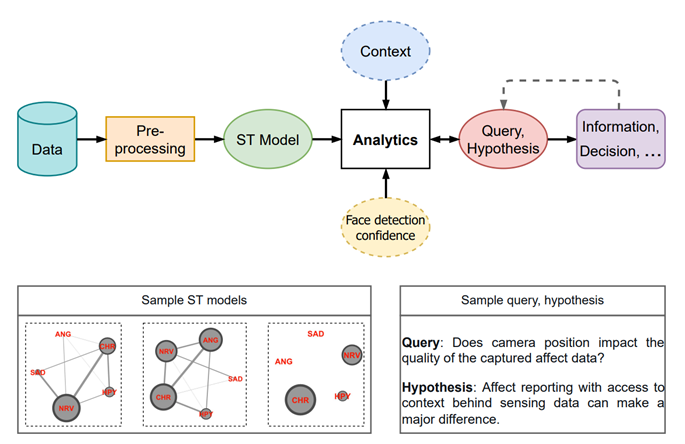Advantages:
- Enhances analysis with a comprehensive view, nuanced understanding of affect data.
- Captures evolving patterns in affective computing with precise spatio-temporal insight.
- Unveils biases in affect data, facilitating ethical development through analytics.
Summary:
In the realm of affective computing (AC), the current challenge lies in ensuring ethical development and deployment to establish user trust. Existing methodologies often fall short in addressing key issues such as fairness, bias mitigation, privacy preservation, and accountability. This gap hampers the ability to responsibly quantify, visualize, and analyze affected data, hindering progress in the field.
Our technology introduces a novel spatio-temporal model rooted in network science, revolutionizing the landscape of affective computing. Unlike traditional methods, this model captures intricate relationships among variables in secondary affect data, facilitating holistic system analysis. By enabling graph analytics, it offers crucial insights into potential issues originating from study setups, data recording devices, and biases introduced by affected reporters. This innovative approach advances ethical standards, transparency, and governance in effective computing.

A workflow diagram of the proposed affective graph analytics.
Desired Partnerships:
- License
- Sponsored Research
- Co-Development